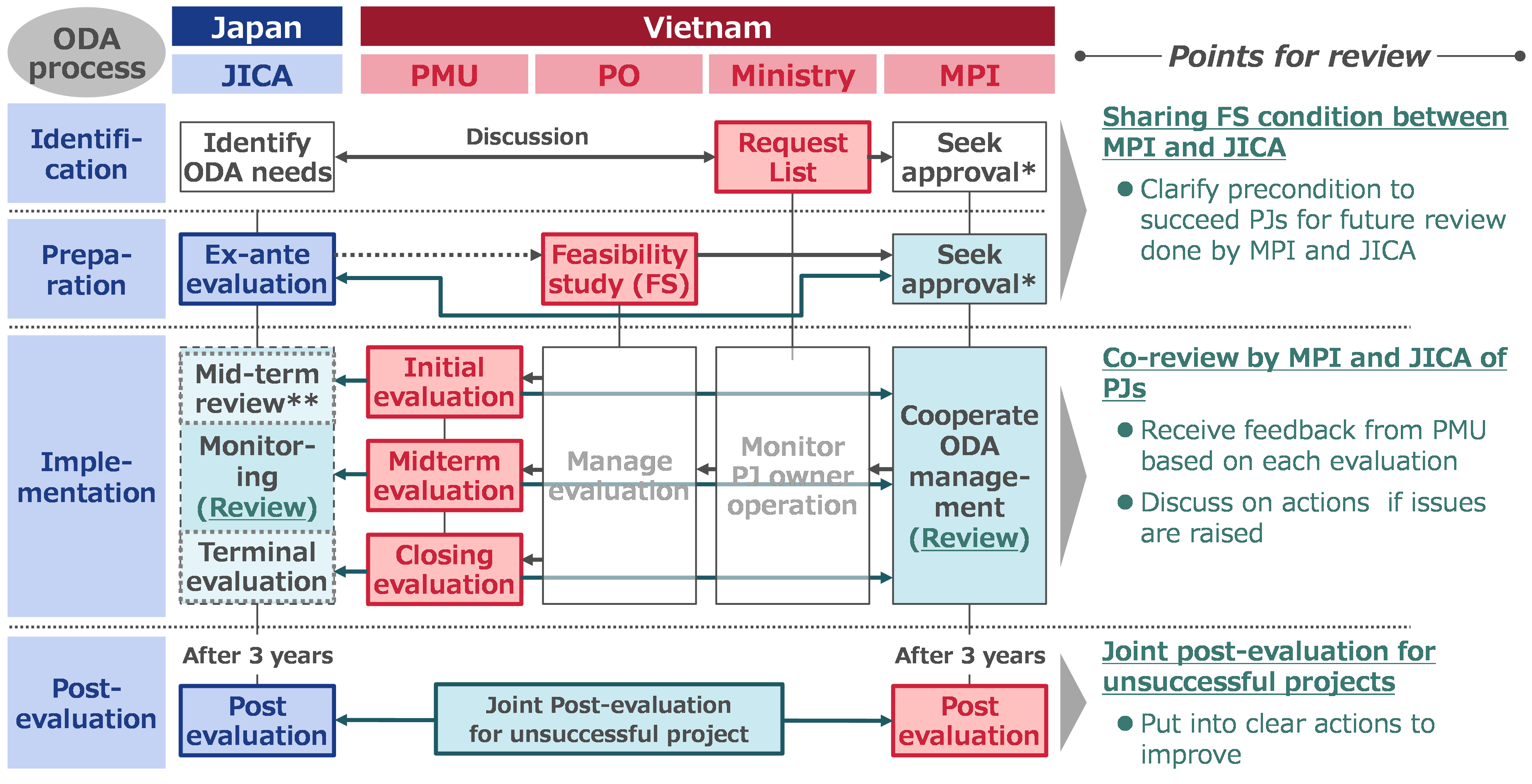DI supported JICA and MPI
• Client: Japan’s JICA & Vietnam’s Ministry of Planning and Investment (MPI)
• Country: Vietnam
• Industry: ODA/public investment
Background:
The Cai Mep-Thi Vai International Port in Vietnam, funded by an ODA Yen Loan, began operations in early 2014. Despite its strategic importance, the Cai Mep container cargo terminal has struggled with low utilization rates due to several factors. These include an oversupply of container terminals in the area caused by uncoordinated construction approvals and delays in relocating ports from Ho Chi Minh City, stemming from conflicting stakeholder interests.
Under these challenging circumstances, the Japan International Cooperation Agency (JICA) proposed a joint evaluation project with Vietnam’s Ministry of Planning and Investment (MPI) to ensure the effective utilization of ODA investments. DI was appointed as the lead consultant to assess the situation, identify key improvement areas, and develop mechanisms for better coordination and post-evaluation of ODA projects. The initiative seeks to enhance operational efficiency, secure the port’s sustainability, and refine the roles and processes of MPI and JICA in future projects.
Support Overview:
DI, as the prime consultant, undertook a multi-faceted approach to address the challenges facing Cai Mep-Thi Vai International Port and optimize the effectiveness of ODA investments.
Evaluation of Utilization Challenges:
DI conducted a detailed analysis of the underutilization of the Cai Mep container terminal, focusing on the oversupply of terminals and delays in the relocation of ports from Ho Chi Minh City. The team identified the political, economic, and logistical factors contributing to the current challenges, engaging with local stakeholders for a holistic understanding.
Capacity and Role Assessment:
DI evaluated the roles and capacities of MPI and JICA throughout the joint evaluation process. This included analyzing how these entities coordinated ODA planning, approvals, and oversight to pinpoint areas requiring improvement.
Mechanism Development for Joint Post-Evaluations:
DI proposed a robust mechanism for conducting joint post-evaluations of ODA projects. This mechanism includes standardized evaluation criteria, stakeholder engagement protocols, and transparent reporting processes to ensure alignment among all parties and enhance accountability.
Strategic Recommendations:
DI delivered actionable recommendations to address oversupply issues, streamline port relocation efforts, and foster better stakeholder collaboration. These strategies aim to maximize the port’s utilization, improve operational efficiency, and establish a replicable model for future ODA-funded projects.
Image: DI’s concept solution to improve the evaluation of Japanese ODA projects






